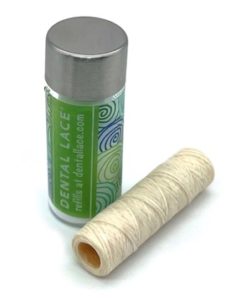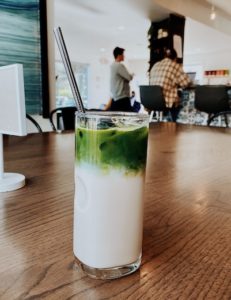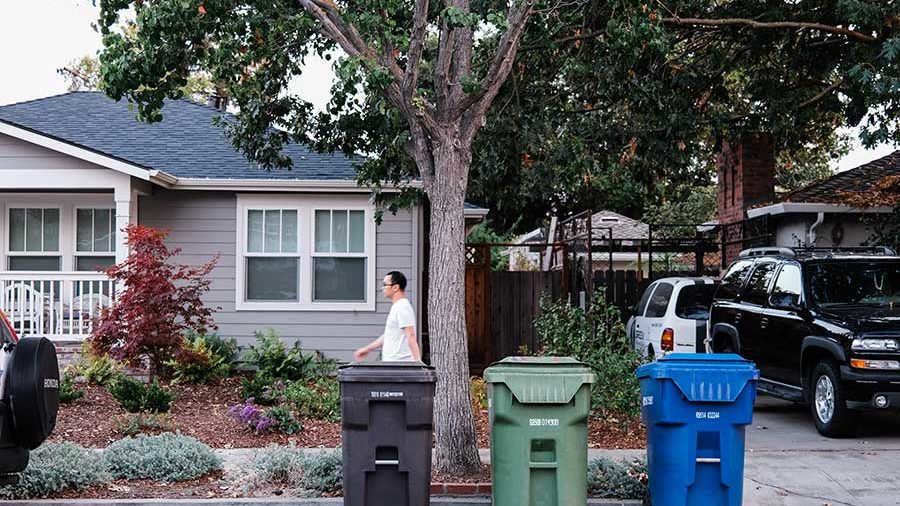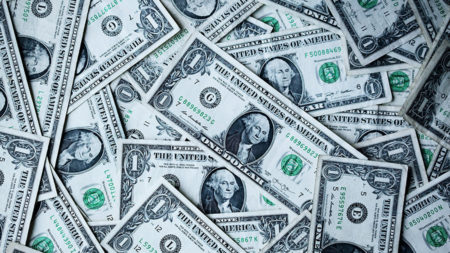Making the switch to more sustainable products doesn’t have to be life-changing. Move into a more eco-friendly lifestyle by incorporating these products into your routine.
According to the U.S. Environmental Protection Agency, the average American generated about 4.9 pounds of trash per day in 2018. Added up over the course of the year and hundreds of millions of other people, that comes out to a grand total of 292.4 million tons of trash.
Fortunately, there are more eco-friendly products today than before, and for all kinds of everyday use.
Typically made from organic and all-natural ingredients, these products offer a more sustainable alternative to their wasteful counterparts. What’s more, these items generally last longer than single-use products. In other words, they can save money in the long run because you won’t need to buy as many replacements.
Even better, making the switch to more sustainable products doesn’t have to be dramatically life-changing. For starters, you can easily transition into a more eco-friendly lifestyle by incorporating these 12 products into your daily routine.
Quick Links
- Reusable sandwich bags
- Recycled toilet paper
- Biodegradable floss
- Reusable straws
- Swedish dishcloths
- Cloth napkins
- Smart thermostats
- Rechargeable batteries
- Reusable notebooks
- Low-flow shower heads
- Home cleaning products
- Compost bins
1. Reusable sandwich bags
Unlike single-use Ziploc bags, reusable sandwich bags can be washed and reused over and over again. Some are made of silicone; others use cotton or another durable but biodegradable fabric.
A few worth investing in:
Why use these instead of regular sandwich bags?
Ziploc bags and other plastic sandwich bags are technically recyclable—but many curbside recycling programs don’t accept plastic bags. Because of this, they often end up in landfills or pollute the environment. Since it can potentially be used hundreds of times, a single reusable sandwich bag reduces this waste.
2. Recycled toilet paper
The most popular toilet paper brands in the U.S. contain zero recycled paper. They emphasize softness—and soft toilet paper is generally made using natural tree fiber rather than recycled paper materials.
Unfortunately, this means making soft toilet paper requires a lot of trees.
If you’re willing to sacrifice some softness for the sake of the environment, try using recycled toilet paper. Producing recycled toilet paper actually requires less water and energy than regular toilet paper; it also creates less air and water pollution.
Some eco-friendly toilet paper brands include:
3. Biodegradable floss
Added up, small changes can make a big difference in reducing waste—even things as small as floss.

Every year, the average person uses 122 yards of dental floss, which usually comes in lengths of 50 to 200 yards. So depending on the length of floss you buy at a time, you might go through anywhere from 40 to 170 or more containers of floss over the course of your lifetime. (That’s assuming you’re a diligent flosser, of course.)
But the most common floss sold in grocery stores often comes in small plastic containers that use #5 plastic—which isn’t always accepted by recycling centers.
That doesn’t mean you should give up flossing altogether. Instead, consider using an eco-friendly option like Dental Lace.
Dental Lace offers refillable floss containers made of glass and that hold 100% biodegradable silk floss—so once you’re done flossing, you can simply compost it. And when your floss is running low, you can buy a refill rather than a whole new container. It’s an innovative and climate-conscious solution for a more sustainable oral hygiene routine.
4. Reusable straws

In 2018, Starbucks announced it would do away with plastic straws across its more than 28,000 stores, opting i
nstead for either strawless lids or compostable straw materials.
Other restaurant chains followed suit—but it’s not just major chains that have the power to do this. Consider getting a pack of stainless steel straws to use for your homemade coffee or cocktails. There are also bamboo, silicone, and glass straws.
What makes plastic straws harmful to the environment? They’re generally not biodegradable. They’re also often not disposed of properly—because of their light weight, they’re especially prone to blowing out of garbage cans and trash collection facilities. As a result, plastic straws often wind up as litter. In fact, alongside plastic bags and glass bottles, they’re one of the top 10 ocean pollutants.
5. Swedish dishcloths
Instead of using paper towels or sponges to wipe down your countertop, consider using Swedish dishcloths. These dishcloths are 100% compostable and washable, making them an environmentally friendly alternative for traditional wipes.
Wet-it’s dishcloths last up to six months, meaning a pack of three can last for well over a year. There’s also EcoJeannie’s reusable sponge cloths, which are made of cellulose and similarly biodegradable.
Just one note about these cloths: when dry, they tend to be very stiff. It may take some getting used to, but they’re still very absorbent!
6. Cloth napkins
Cloth napkins aren’t just for dining out at fancy restaurants—they’re an environmentally friendly replacement for traditional paper napkins because you can wash and reuse them.
Not to mention, cloth napkins add a classy touch to any dinner party or other fancy eating event hosted at home.

You can buy multiple sets to rotate and wash on the regular from major home decor brands like Crate & Barrel and Wayfair.
7. Smart thermostats
Smart thermostats are one of the pricier items on this list, but can have a significant impact by making your home more energy-efficient. You can adjust the temperature manually on your smartphone or home smart device, but these thermostats can also collect data and adjust temperature based on your household’s past energy trends.
You may need to get an HVAC specialist for help with installation, but smart thermostats save you money in the long run by reducing your energy bills. Best Buy, Home Depot, and Lowe’s offer models between $100 and $300.
8. Rechargeable batteries
Many disposable batteries wind up in landfills rather than being recycled. There, they release corrosive materials and other toxic chemicals into the environment.
Rechargeable batteries can help reduce this waste, as well as the greenhouse gases produced from manufacturing—but only if they’re used to their full potential (at least 50 times or so). They’re also a major source of cost savings; rechargeable batteries usually pay for themselves after five or six reuses.
Many battery brands now offer rechargeable batteries, but we recommend Panasonic’s Eneloop batteries, which are pre-charged using solar power.
9. Reusable notebooks
Reusable notebooks offer a middle ground between paper and completely digital note-taking. They look like conventional notebooks, except their synthetic pages can be scanned to your computer or uploaded directly to Google Drive, Dropbox, etc. Once you’ve scanned your written notes, you can wipe your pages clean and start over with a blank slate.
The obvious benefit to these notebooks: they save trees because you’re not writing on traditional sheets of paper.
One of the best-known brands of reusable notebooks is Rocketbook. It offers multiple types, including planners and top-spiral notebooks.
10. Low-flow shower heads
Ever heard of “low-flow” shower heads? These are shower heads that reduce the flow of water, either by:
- Restricting water flow and squeezing it through very small holes (non-aerating heads), OR
- Mixing oxygen with water (aerating heads)
No matter which you choose, switching to a low-flow shower head can significantly reduce the amount of water used while bathing.
After all, the average shower in the U.S. uses 17.2 gallons of water. And behind only toilets and washers, showers are usually the third-largest source of water consumption in the average household. They can also make your utility bill more expensive because they require hot water—water heating accounts for 18% of the typical household’s total bill.
You can find low-flow shower heads at any home improvement store like Home Depot or Lowe’s. Walmart also sells them.
(Besides switching to low-flow shower heads, also consider taking quicker showers to conserve more water!)
11. Home cleaning products
Many traditional cleaning supplies are made using toxic chemicals—sure, they get the work done but they’re harmful to both humans and the environment.
How exactly do they affect the environment? Whether you use them for your sink, toilet, dishwasher, or another appliance, these cleaners eventually go down the drain and to a wastewater treatment facility. Sewage treatment takes place to remove contaminants and prevent water pollution—but it’s not always successful in removing all contaminants.
As a result, chemicals from harsh cleaning products build up and negatively impact wildlife.
Fortunately, you can find natural, organic, and eco-friendly cleaning products at Grove Collaborative and Common Good. Even better, these brands also offer refills to reduce plastic consumption. Alternatively, you can make your own homemade cleaners with cheap ingredients like vinegar and baking soda.
12. Compost bins
Nearly 40% of all food in the U.S. is wasted, with 108 billion pounds thrown away every year.
This waste ends up in landfills, where it struggles to decompose because landfill trash is so tightly compacted. Even worse, organic materials that do decompose in landfills release methane because of the lack of oxygen—making landfills the third-largest source of methane emission in the U.S.
One way to reduce your food waste: composting. Composting transforms unwanted food scraps into a nutrient-rich organic material that can improve soil health. It also reduces your trash by as much as 30%.
You can get started by collecting your food waste in a compost bin at home. Consider keeping a smaller compost bin in your kitchen and a larger bucket outside, like in your yard, to prevent indoor smells. You can also find large tumbling composters at Home Depot.





